Geography - Natural Disasters in Tamil Nadu | 10th Social Science : Geography : Chapter 7 : Physical Geography of Tamil Nadu
Chapter: 10th Social Science : Geography : Chapter 7 : Physical Geography of Tamil Nadu
Natural Disasters in Tamil Nadu
Natural Disasters in Tamil Nadu
A sudden
natural catastrophe that causes great damage or loss to lives and properties is
called as disaster.
According
to United Nations office for Disaster Risk Reduction, Disaster Risk Reduction(
UNDRR) is the concept and practice of reducing disaster risks through
systematic efforts to analyse and reduce the causal factors of disasters. This
includes reducing exposure to hazards, lessening the vulnerability of people
and property, wise management of land and environment, and improving
preparedness and early warning for adverse events.
Here we will discuss about the natural disasters in Tamil Nadu and the measures to be adopted before, during and after different disasters.
Landslide
A
collapse of a mass of earth or rock from a mountain or cliff is called landslide.
Water is the most common trigger of a landslide.
Nilgiris in Tamil Nadu is identified as one of the most vulnerable districts in
the country and landslides pose a major threat in this area. The other regions
which are prone to land slides are Coimbatore and palani hill of Dindigul
district where Kodaikanal hill station is located.
Risk Reduction Measures
Before: Create awareness; stay alert and awake; monitor the news updates; make evacuation plan; listen for any unusual sounds that might indicate moving debris such as trees cracking, boulders knocking and consider leaving the place of landslide if it is safe to do so.
Landslide
After- Stay
away from the slide area; listen to local
radio or television stations for the latest emergency information; watch for
flooding, which may occur after a landslide or debris flow; check for injured
and trapped persons near the slide, without entering the direct slide area.
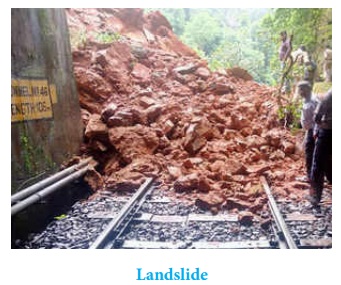
Flood
Flood is
a common one in the coastal districts of Tamil Nadu during northeast monsoon.
The recent flood occurred in the state was in 2015.
Risk Reduction Measures
Before: Know
about relief centres and evacuation
routes; keep emergency phone numbers and important information; fold and roll
up things on to higher ground.
During: Be quick,
keep safe and ensure that children
and elderly are safe by leaving the house to a higher ground; turn off all
electrical appliances and gas; leave the area before its get too late; do not
drive through the water; stay away from power lines or broken power
transmission cables and try to keep away from flood water.
After: Make sure
to get back inside your house, keep
all power and electrical appliances off before it is okay to put them on and
wear appropriate dress before cleaning house which is necessary to clean the
contamination.
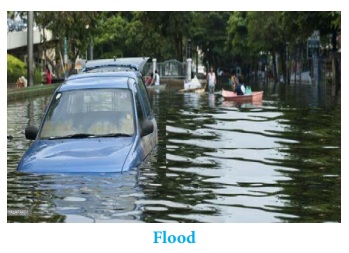
Cyclone
The
coastal regions of Tamil Nadu are often hit by the tropical cyclones formed in
Bay of Bengal during northeast monsoon. Occurrence of flood, losses to lives
and properties are the recurring one in the state. Based on the cyclone hit
areas, the state of Tamil Nadu can be divided into five zones namely very high,
high, medium, low and very low cyclone prone zones.
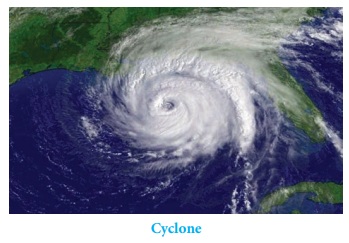
Risk Reduction Measures
Before: Ignore rumours,
stay calm, don’t be panic; Keep your
mobile phones charged to ensure connectivity; use sms; listen to radio; watch
TV; read newspapers for weather updates. Keep your documents and valuables in
water proof containers; prepare an emergency kits with essential items for
survival; secure your house; carry out repairs; don’t leave sharp objects
loose; untie cattle/animals for their safety. Fishermen should keep a radio set
with extra batteries handy; keep boats and rafts tied up safely and don’t
venture out in the sea.
During: Take care
of the old and young, keep all
family members inside the house; switch of all electrical appliances, stay in
an empty room, movable items should be kept securely tied; try to help your
neighbours but, don't go out during cyclone.
After: Those who
shifted to the cyclone centre must
remain there till instructions are received; strictly avoid loose electrical
wires after the cyclone; beware of snakes and other animals immediately after
the cyclone; clear debris and carcasses from/near the premise after the cyclone
and report losses truthfully and accurately to the authorities.
Drought
Tamil
Nadu is water deficit state. It is almost a regular one and not a seasonal one.
It depends mostly on northeast monsoon for its rain. Its failure ends in
disastrous.
To manage
the water deficit, rain water harvesting and water conservation methods have to
be implemented strictly.
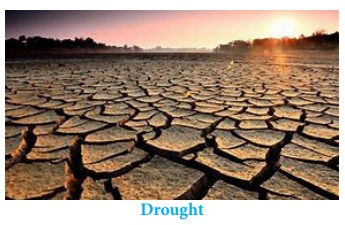
Some methods of water conservation are:
Protection of water from pollution; redistribution of water;
rational use of groundwater; population control; renovation of traditional
water sources; use of modern irrigation methods; increasing forest cover;
changing crop pattern; flood management and use of geothermal water are some of
the major water conservation methods.
Fire Accident
Tamil
Nadu is a tropical state. The high temperature during summer leads to
occasional forest fire in deciduous and thorn forests.
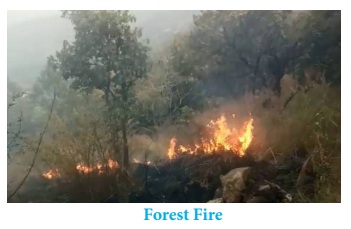
Risk Reduction Measures
Before: Create
defensible space to separate your home
from flammable vegetation and materials (30 feet); follow all local fire and
building codes; keep all trees and shrubs trimmed. Use approved fire resistant
materials; make evacuation plans with family members which include several
options with an outside meeting place.
During: Listen to
radio; watch tv; read newspapers for
updates; if adequate water are available fill buckets with water. turn a light
on a room in case of smoke; turn off gas and electrical appliances and be ready
to evacuate all family members.
After: Check
with fire officials before attempting to
return to your home; use caution when re-entering a burned area - flare ups can
occur; check grounds for hot spots and check the roof and exterior areas for
sparks and embers.
Tsunami
Though
Tsunami is not a common one in India, its incident in 2004 alerted India and
the state of Tamil Nadu on this aspect.
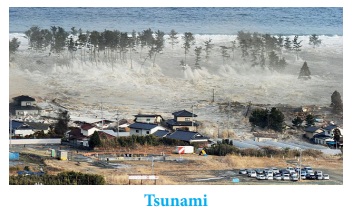
Risk Reduction Measures
Before: if you
live in a coastal area, know about tsunami
risk and local warning arrangements; develop household emergency plan; know
where the nearest high ground is and how you will reach it.
During: Take your
get away kit, don’t travel areas at risk; move immediately nearest high ground;
if you can’t escape tsunami, go to an upper storey of the building or climb
onto a roof or tree or grab a floating objects; never go to the shore to watch
tsunami and listen to local radio stations as emergency management.
After: Continue
to listen to the radio; don’t return
to the evacuation zone until authorities have given all clear; check yourself
for injuries and get first aid and help others.
Earthquakes
India is
a vast country which experiences many earthquakes at different periods.
Generally high risk zones of the country are located in the north and central
parts. The state of Tamil Nadu is located in the moderately low risk zone.
Risk Reduction Measures
During: Take
cover under a strong table or any other
piece of furniture and remain under cover until the shaking stops.
After: Proceed
cautiously once the earthquake has stopped and always avoid roads, bridges that
might have been damaged by the earthquake.
For the management of disasters
in the state, the following forces and organizations are in service.
State/Union Territories organizations
1. State Disaster Management Authority (Chairman-Chief Minister)
2. Relief/ Disaster Management Department
3. Police
4. Forest Department
5. Fire and Civil Defence Services
6. Health Services
7. Transport Department
8. Public Works Department
9. Veterinary Services
10. Food & Civil Supplied Department.
District Organizations
1. District Magistrate (Chairman-District Collector)
2. Revenue Department
3. Civil Administration,
4. Local Police,
5. Civil Defence,
6. Fire & Emergency Services,
7. Home Guards (also Local Community, Non-Governmental Organisations, Voluntary Agencies) etc.
Related Topics